Atonement: A Poignant Exploration of Guilt, Imagination, and Narrative Power
Joe Wright’s powerful cinematic masterpiece, “Atonement,” gently yet firmly transports viewers to the seemingly idyllic yet undeniably tense summer of 1935 Britain. It’s a period steeped in societal ennui, stifled desires, and a quiet sense of foreboding that subtly underpins the unfolding drama. The film intricately unfurls a deeply tragic narrative, ignited by youthful desires, profound misunderstandings, and the devastating ripple effects of a single egregious mistake.
At its heart is Briony Tallis, a precociously imaginative thirteen-year-old (brought to life with captivating intensity by a young Saoirse Ronan). Her burgeoning dramatic flair is immediately evident as she busies herself staging her own elaborate play within the sprawling, sun-drenched family estate. Meanwhile, her older sister, Cecilia (portrayed with luminous grace by Keira Knightley), navigates the oppressive heat of the British summer, her thoughts inextricably drawn to Robbie Turner (James McAvoy), the intelligent, charming, and ambitious son of their housekeeper. His inherent talent and magnetic presence, set against his humble origins, subtly underscore the era’s rigid class distinctions, hinting at forbidden attractions.
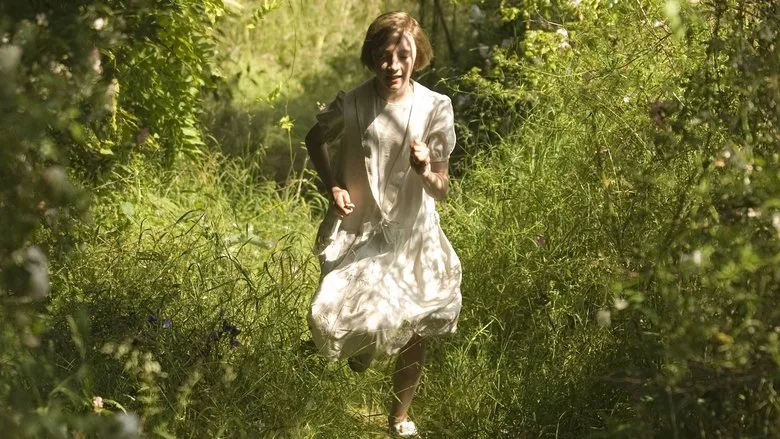
Wright masterfully crafts an atmosphere laden with a palpable sense of impending doom, utilizing both evocative sound design and striking visual artistry to meticulously build suspense. The insistent, rhythmic clatter of a typewriter frequently punctuates the evolving narrative, subtly reminding us of the story being written – or tragically rewritten. Books, scattered throughout the Tallis residence like silent observers, serve as powerful symbols of knowledge, escape, and perhaps, the selective narratives we choose to believe. The catalyst for ultimate tragedy is a seemingly innocuous, misdirected letter, whose raw and misunderstood contents abruptly plunge the lives of these characters into an irrevocable descent. A pivotal, clandestine encounter between Robbie and Cecilia, fraught with deep unspoken longing and passion, is tragically misinterpreted by young Briony. Blinded by her youthful naiveté, a burgeoning, overactive imagination, and a rudimentary understanding of complex adult passions, Briony tragically frames Robbie in her mind as a sinister, predatory figure. This dangerous conviction solidifies when a disturbing crime truly occurs within the estate, leading directly and irrevocably to Robbie’s wrongful arrest and the shattering of innocent lives.
The profound ripple effects of this catastrophic misjudgment resonate for decades. As the dark clouds of war loom and eventually engulf Europe, Robbie, his aspirations shattered and his love seemingly lost, is compelled to enlist in the British army. The film then shifts its focus to a harrowing and visually stunning depiction of the brutal, unsparing realities of World War II. Wright employs surreal and deeply poignant imagery, from the desolate, haunting glimpse of an abandoned Ferris wheel overlooking a grim military camp – a stark juxtaposition of leisure and impending doom – to gut-wrenching scenes of wounded soldiers and dying horses, all testament to the senseless devastation and profound human cost of global conflict. Years later, an older Briony (Romola Garai), now working as a nurse tending to the horrifically wounded during the war, finds herself grappling intensely with the devastating consequences of her childhood actions. Haunted by the profound injustice she orchestrated, she is driven by a deep-seated need for atonement, desperately seeking forgiveness from Cecilia, a absolution that may prove tragically elusive.
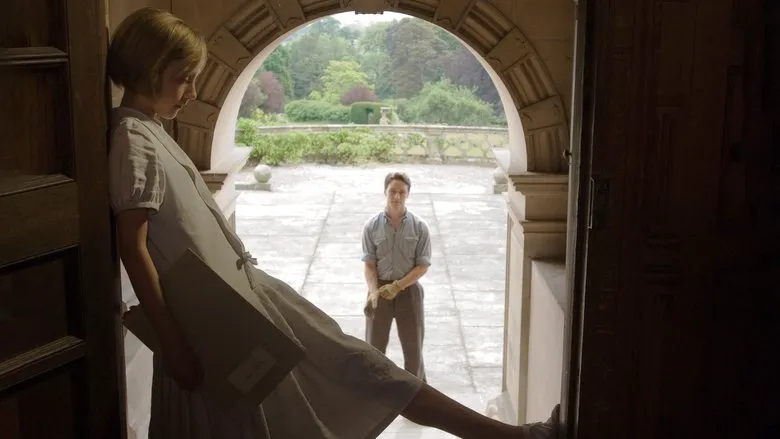
The Unreliable Narrator and the Fluid Nature of Reality
The narrative of “Atonement” takes a breathtaking and intellectually stimulating turn with the introduction of an elderly Briony (a superb, quietly powerful, and profoundly moving performance by Vanessa Redgrave), now a celebrated and prolific author. In a revelation that utterly reshapes the audience’s understanding of everything that has transpired, she unveils that the entirety of the story we have witnessed, with all its vivid details, emotional weight, and perceived truths, has in fact been filtered through her fallible and often guilt-riddled perspective. This stunning confession fundamentally challenges our preconceived notions of absolute truth, the malleability of memory, and the subjective nature of reality itself. Redgrave’s portrayal of the aged Briony is seamless and deeply affecting, embodying the profound evolution of a character grappling with a lifetime of profound regret and acknowledging the immense, almost godlike power she wields through her craft.
While the film justly receives considerable acclaim for its technical prowess and artistic integrity – particularly the evocatively melancholic original soundtrack that underscores its emotional core, Keira Knightley’s strikingly luminous and emotionally raw presence, the exquisite and historically accurate period costumes that lend a rich visual texture, and the masterful, often non-linear editing that skillfully weaves together disparate timelines and contrasting perspectives – it simultaneously provokes profound philosophical questions regarding the very nature of storytelling and the inherent, often deceptive, power of individual perception.

“Atonement” powerfully suggests that objective reality is often a fleeting concept, inherently elusive when refracted through complicated human consciousness. Briony, much like the central figure in M. Night Shyamalan’s “The Sixth Sense,” possesses a heightened, almost hyper-sensitive imagination and perception that blurs the often rigid lines between tangible reality and the richly imagined. This deliberate ambiguity serves to further underscore the film’s profound exploration of overarching themes: the crushing weight of guilt and its pervasive presence, the challenging and often elusive path to redemption, and the transformative, almost redemptive, power of narrative itself to reshape understanding and even history.
From McEwan’s Novel to Wright’s Cinematic Vision: A Shift in Focus
“Atonement” stands largely as a faithful and undeniably admirable adaptation of Ian McEwan’s acclaimed and intricate novel, a text lauded for its intellectual depth. However, Joe Wright’s cinematic interpretation subtly diverges from the source material in its nuanced portrayal of Briony. While McEwan’s novel meticulously delves into the multifaceted psychological complexities of a gifted writer wrestling with the profound moral ramifications of her craft – the ethical tightrope walked by an author who manipulates destinies within their fictional worlds – Wright’s film tends to present a more distilled, arguably more straightforward perspective of Briony. In the film, she is depicted primarily as a deeply flawed individual whose vivid, unchecked imagination tragically serves as the direct catalyst for devastating, real-world consequences, rather than emerging as a profound meditation on an author’s artistic and moral responsibility.
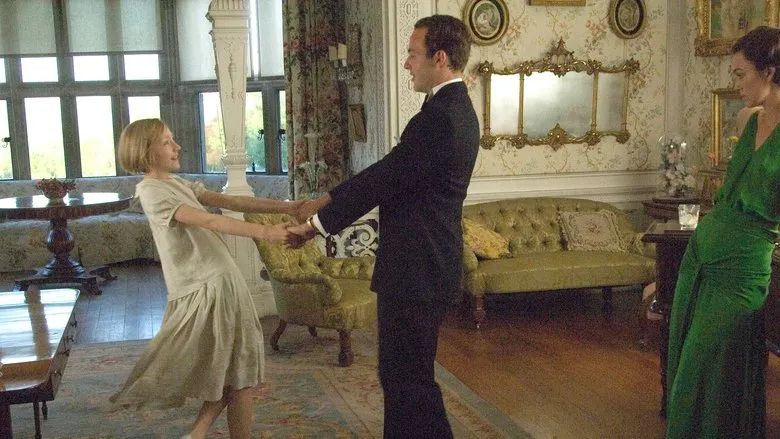
The film also draws discernable inspiration, both visually and thematically, from other notable cinematic works. Echoes of Jean-Pierre Jeunet’s “A Very Long Engagement” can be felt in its sweeping wartime romance and meticulous period detail, while the grand, expansive romantic tragedy of “The English Patient” clearly serves as a touchstone. To a lesser degree, even François Ozon’s “Angel” comes to mind. Yet, where “Angel” explores the fascinating and often dangerous descent of a writer into the very fictional world they create, blurring the lines of sanity within their own narrative, Wright seems to imply, perhaps more cynically, that writers are fundamentally purveyors of exquisitely crafted but ultimately idealized and unrealistic stories, rather than profound, dissecting truths.
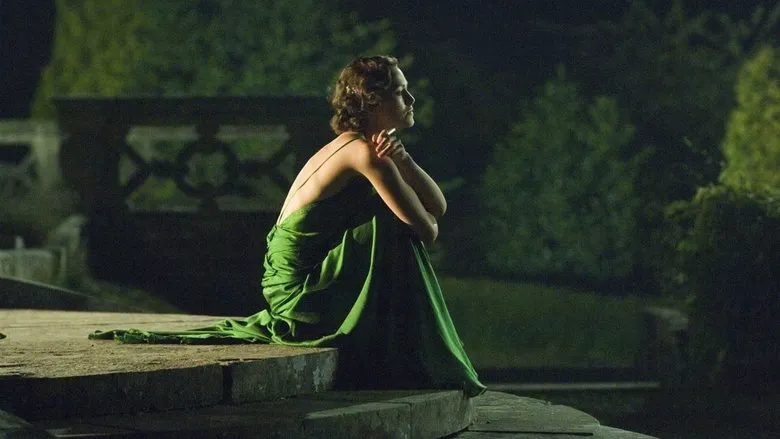
The Weighty Question of Atonement
McEwan’s literary work grapples with one of the most profound and unsettling philosophical questions: can one truly atone for egregious sins, especially for an author who wields such immense power over the destinies and perceptions of their characters within the narrative? He compellingly examines the heavy moral responsibility incumbent upon the novelist, who acts as a kind of omnipotent “god” within their constructed universe, possessing the capacity to shape events, alter perceptions, and ultimately determine outcomes.
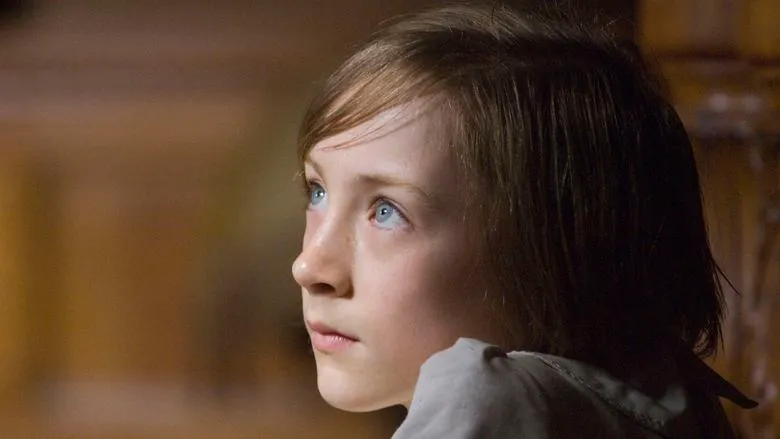
Wright’s cinematic adaptation, while preserving the emotional core and much of the novel’s thematic resonance, transforms this complex intellectual and moral inquiry into a more streamlined, though no less emotionally impactful, morality tale. It foregrounds the devastating ripple effects of a young girl’s pivotal mistake, celebrates a passionate and ultimately forbidden love story, luxuriates in the dramatic and imposing backdrop of World War II, and undeniably capitalizes on the iconic visual impact of a captivating green dress. While perhaps simplifying some of the novel’s deepest philosophical nuances, the film nonetheless delivers a potent emotional punch regarding the themes of perception and consequence.
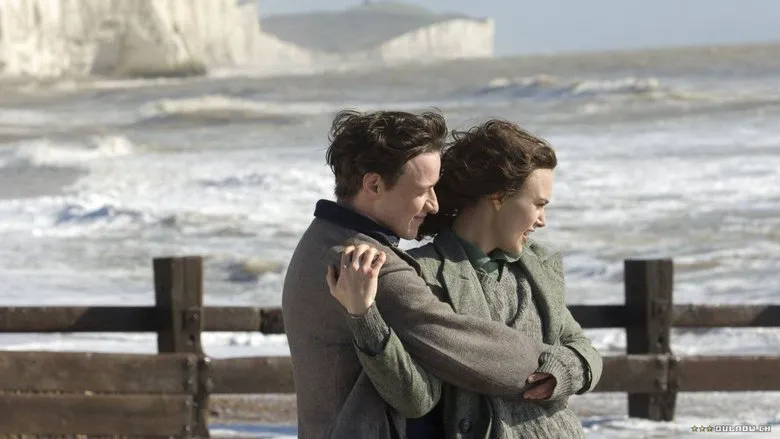
In conclusion, “Atonement” stands as an undeniably visually stunning and deeply emotionally resonant film. It adeptly explores the enduring themes of profound guilt, the strenuous journey towards redemption, and the undeniable, often manipulative, power of intricate storytelling. While it may not fully capture every intricate nuance and philosophical layer of Ian McEwan’s monumental novel, it unequivocally remains a compelling, often heartbreaking, and profoundly thought-provoking cinematic experience that lingers long after the credits roll, inviting reflection on the stories we tell and the truths we choose to believe.